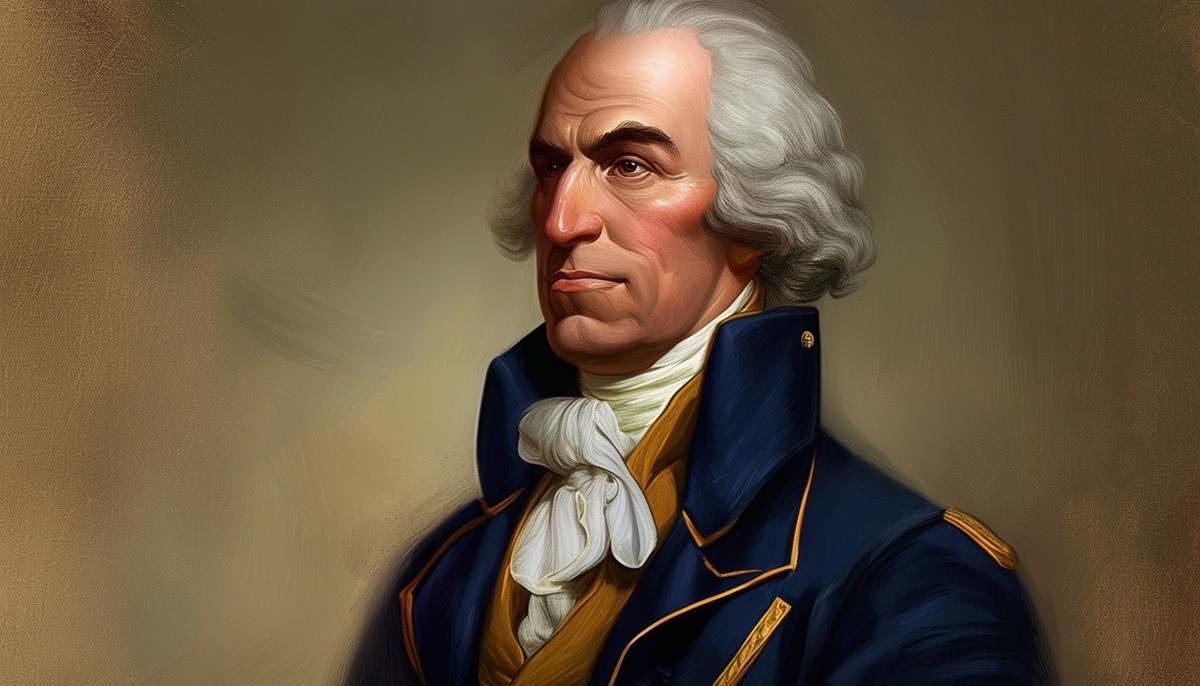Early Life and Family Background
John Hancock was born on January 23, 1737, in Braintree, Massachusetts. His father died when he was young, and John moved in with his wealthy uncle and aunt, Thomas and Lydia Hancock, in Boston. Thomas Hancock owned a successful mercantile house, The House of Hancock, which was involved in transatlantic trade. Living with his uncle exposed John to commerce and politics.
John attended the Boston Latin School and later graduated from Harvard College in 1754. His education brought him in contact with the growing dissent against British rule in Boston.
When Thomas Hancock died in 1764, John inherited the Hancock estate and business. This inheritance positioned him as a prominent figure in Boston's economic and political landscape.

Education and Early Influences
At Boston Latin School, John Hancock studied Greek, Latin, mathematics, rhetoric, and ethics. These subjects prepared young minds for public life and governance in colonial America. Hancock developed analytical skills and proficiency in articulation, which were crucial for his later roles in politics and commerce.
At Harvard College, Hancock's education included the classics, political philosophy, and economics. The intellectual environment at Harvard, with its emerging revolutionary ideas, shaped Hancock's future as a statesman and leader. He interacted with fellow students and scholars who would later become key figures in the American Revolution.
Living in his uncle's home on Beacon Hill provided Hancock with insights into trade and wealth accumulation. Thomas Hancock mentored John in managing business dealings and nurturing connections. He learned the importance of business acumen and political savvy.
Hancock's education and mentorship prepared him for a career marked by civic involvement and revolutionary fervor. His classical education and understanding of merchant capitalism contributed to his leadership role in the growing resistance against British rule.

Inheritance and Early Business Ventures
When Thomas Hancock died in 1764, John Hancock inherited a substantial fortune and a thriving mercantile operation. The House of Hancock was involved in trade between the colonies and Britain, dealing in goods such as:
- Tea
- Glass
- Paper
- Other commodities regulated by the Navigation Acts
Hancock maintained his uncle's established relationships with trading partners and political connections, ensuring the stability of the business during a time of increasing economic unrest in the colonies. He also expanded into new markets to diversify his holdings against potential disruptions in trade with Britain.
Hancock's inherited wealth allowed him to become a benefactor, funding infrastructure and community projects. This generosity made him a beloved figure in Boston society. His business success and public affection strengthened his influence and tied him to local politics, particularly issues of taxation and representation.
Despite his initially moderate political stance, Hancock's deep integration into the trading community and his growing concern for colonial rights led him to join and eventually lead rebel factions like the Sons of Liberty.
By skillfully balancing his business interests with his increasing involvement in colonial politics, Hancock transformed from a wealthy merchant into a respected public figure. His inheritance provided a platform for him to become a key player in the events leading up to the American Revolution.

Political Awakening and Early Impact
The implementation of the Stamp Act in 1765, which taxed printed materials in the colonies, marked a turning point in John Hancock's political awakening. Although initially not a strong opponent of the Act, Hancock's perspective shifted as he witnessed the widespread protests in Boston.
Hancock aligned himself with the more radical elements of the Patriot movement. He used his position and wealth to rally support against the Stamp Act, organizing boycotts of British goods that put economic pressure on British merchants. His efforts contributed to the repeal of the Stamp Act in 1766.1
Hancock's involvement in the Stamp Act protests showcased his leadership qualities and ability to unify various factions under a common cause. His opposition to British policies made him a threat to the colonial administration and increased his popularity among the local citizens.
Elected to the Massachusetts House of Representatives after the Stamp Act's repeal, Hancock began his journey into revolutionary activity. He found an ally in Samuel Adams, and together they crafted opposition against British governance through gatherings at places like Boston's Green Dragon Tavern.
In the years following the Stamp Act, Hancock transformed from a wealthy merchant into a powerful advocate for colonial independence. He combined his business insights with his criticism of imperial policies, solidifying his legacy as a founding figure of the American Revolution.
Hancock's political awakening demonstrated his ability to balance personal aspirations with the welfare of the community. His early involvement in asserting political and economic self-determination foreshadowed his role in shaping America's constitutional future.

- Morgan ED, Morgan HM. The Stamp Act Crisis: Prologue to Revolution. UNC Press Books; 1995.
